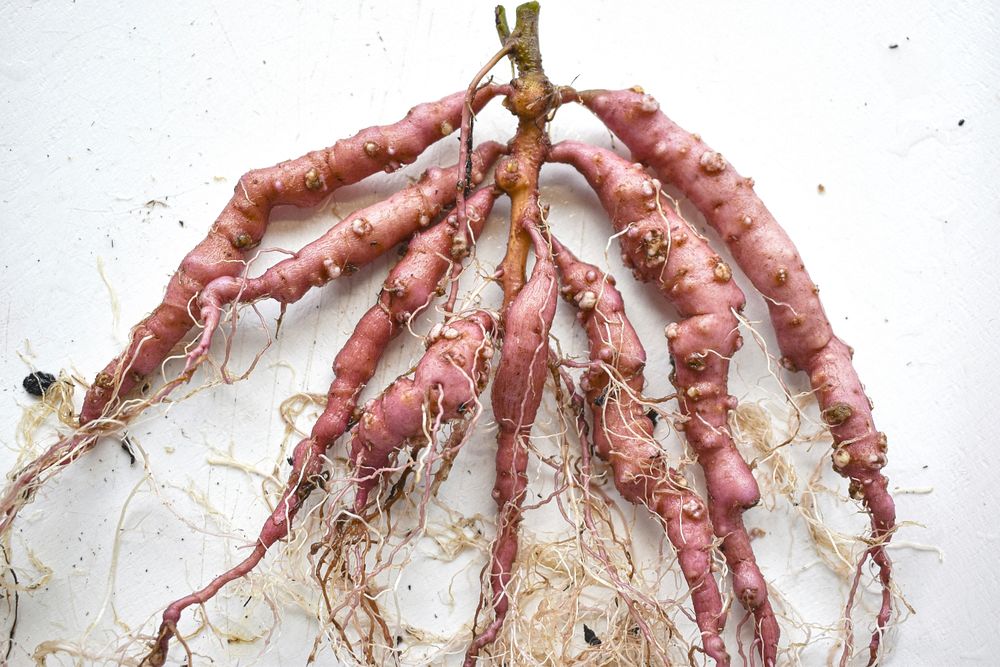
A sweet potato plant with galling, the abnormal enlargement or swelling of or on the root of a plant, is seen here at the U.S. Department of Agriculture (USDA) Agricultural Research Service (ARS), U.S. Vegetable Laboratory in Charleston, South Carolina, on January 28, 2021.
Research Plant Pathologist-Nematologist William Rutter, Ph.D., works here to develop tools to manage and mitigate the damage caused by the Meloidogyne enterolobii (the guava root-knot nematode), and other root-knot nematode species.
Nematodes are small microscopic roundworms in the soil.
These specific nematodes only appeared in the United States within the last 20 years and they've slowly been spreading across the southeastern states causing damage in sweet potato as well as several other crops.
This research will provide resources to develop germplasm that will help breeders develop new crop varieties that are resistant to the nematode as well as management practices that will help farmers directly manage the nematode and stop its spread in the field.
Part of the work includes the imaging of infected plants with a spectral imager that reveals signatures that are not visible to the naked eye. The hope is to score plants for their susceptibility to this nematode.
Root-knot nematodes in general and particularly Meloidogyne enterolobii can infect the majority of cultivated plants in the U.S. They're currently causing a lot of damage in sweet potato in the Carolinas, but they also infect other vegetable crops such as pepper, cucumber, watermelon, as well as soybean and cotton. Root-knot nematodes cause billions of dollars of damage each year for the U.S. and farmers globally.
USDA/ARS Photo by William Rutter.
Related information includes:
Controlling Guava Root-Knot Nematode video
tellus.ars.usda.gov/stories/articles/controlling-guava-root-knot-nematode/
Meloidogyne enterolobii Found Infecting Root-Knot Nematode Resistant Sweetpotato in South Carolina, United States at apsjournals.apsnet.org/doi/10.1094/PDIS-08-18-1388-PDN
A Multi-state Effort to Contain and Manage the Invasive Guava Root Knot Nematode (GRKN) in Vegetable Crops.
ars.usda.gov/research/project/?accnNo=437518. Original public domain image from Flickr